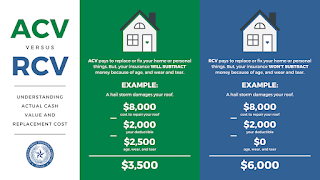Umbrella insurance is a type of personal liability insurance that can cover claims in excess of your regular homeowners, renters or auto policy coverage. It can protect not just the policyholder, but also members of your family or household, and it can cover injury to others or damage to their possessions. There are many scenarios that would warrant the need for an umbrella insurance policy. We outline a few of them here.
Example #1: Your teenage daughter is babysitting the neighbor’s kids and leaves the house for a moment to run to the store. When she returns, one of the children is badly injured and requires surgery. The child’s medical bills exceed $300,000. The parents of the children sue you to cover the medical bills.
Example #2: Your son dislikes his gym class as well as the teacher. He goes on social media and writes some very reproachful comments about the teacher that leave him in a bad light. The teacher sues and is awarded $500,000.
Example #3: Your 17-year-old child decides to pick up some friends and go “cruising” in your car. He loses control of the vehicle while showing off how fast the minivan can go. Each child is critically injured. Your umbrella policy helps cover the medical bills.
Example #4: You invite friends to your home to celebrate the Fourth of July. You provide all the entertainment, food and refreshments, including alcohol. One friend who is known for drinking too much, does just that, gets in his car and drives home, getting in a terrible car accident that kills one person. The family sues you, and you’re found to be liable for serving the friend too much alcohol.
Example #5: Your rental property’s deck is rotted and your tenant falls through it, badly injuring his leg and requiring reconstructive surgery. A jury awards the tenant $750,000 for damages.
Example #6: You host a wedding on your property and rent a bouncy house. The house is not staked down and blows away in the wind with children inside of it. The kids are fine, but you’re sued for negligence. The families of the children are awarded $100,000 each for mental and post-traumatic stress.
Example #7: Your dog gets out and viciously attacks the neighbor’s show dog. The dog can no longer show because it has scars and a limp. You’re sued for loss of income, and a jury awards the dog owner $450,000.
Example #8: You’re the “cool mom” and agree to buy your kids and their friends alcohol if they promise to stay at the house. One of the friends leaves the house and is killed in an accident. He is found to be intoxicated. The parents of the child sue you for providing him with alcohol. A jury awards $2 million.
Example #9: You host a summer pool party for your child’s birthday at your house. An unsupervised child gets injured while swimming in the pool, and the parents sue for negligence and win.
Example #10: After a bad experience at a local restaurant, you write an inflammatory review online telling others that it’s the worst experience you’ve had. The owner of the restaurant sues for slander and wins.
Example #11: You’re responsible for a four-car accident, and your insurance can’t cover the replacement of the victims’ vehicles or any of their medical bills.
Example #12: Your child gets in a fight at school and breaks another kid’s arm. The parents of the injured child sue and are awarded 250,000 plus medical expenses.
Example #13: Someone is walking on the sidewalk on your property and trips on a crack in the concrete. They suffer a concussion and sue for damage.
Example #14: You leave for a weekend vacation and don’t cover your pool in the backyard. While you’re gone, the neighborhood kids jump your fence and swim in your pool unattended. While swimming, one of them drowns and the parents sue.
Example #15: While vacationing in Mexico, you rent a boat to go out on the water. While boating, you accidentally crash into another boat. Your insurance doesn’t extend coverage out of the country, and you are left with a large out-of-pocket-bill.
Example #16: Your child is fascinated with reptiles and brings one of your snakes to school for show and tell. While at school, the snake bites one of the children, and the kid is scarred for life. The parents sue for both physical and mental damage.
Example #17: A tenant in one of your rental properties complains about a faulty furnace. You say you’ll fix it, but forget to schedule an appointment with a repairman. The furnace catches fire the next week, destroying the tenant’s possessions.
Example #18: You allow your teenager and her friends to drive your golf cart down to the local lake. On the way, she swerves to avoid hitting a squirrel, resulting in a crash that severely injures your child’s friend. You are held responsible and are sued by the parents.
Example # 19: You hire a group of contractors to add an extension to your house. While on a ladder, one of the contractors falls and hits his head, resulting in a concussion. He sues, and you must pay the medical expenses.
Example #20: One of your houseguests at a Christmas party falls down your stairs. The guest sues for medical bills plus pain and suffering. The amount exceeds your insurance liability limit.
Example #21: While out on a hunting trip, you mistakenly shoot and kill a camper. The family sues you to cover funeral costs.
There are countless situations that can occur and exhaust the liability limits on your home or auto insurance policy – but the good news is that umbrella insurance policies are relatively inexpensive. Contact one of our agents at Community Insurance Solutions LLC for your personalized umbrella insurance quote today.










